As cat proprietors, we’ve all experienced minutes when our cat companions let out an ear-piercing shout that sends shudders down our spines.
But why do cats shout? Is it a sign of trouble, a cry for consideration, or something else totally?
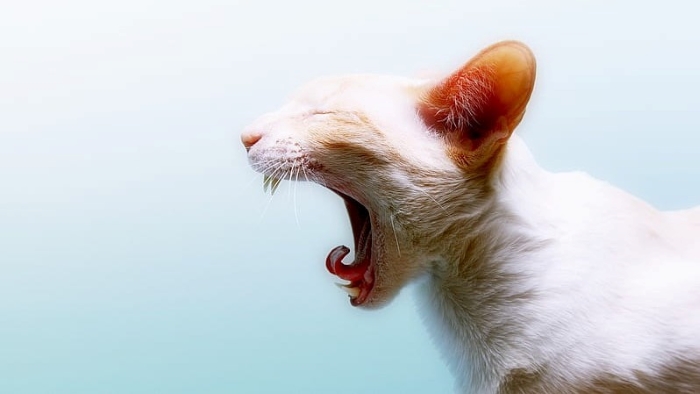
In this blog article, we’ll dive into the different reasons behind why cats shout, interpret their vocalizations, and investigate ways to oversee this behavior.
The Language of Cats: Decoding Feline Vocalizations
Interpreting cat vocalizations can be a captivating and fulfilling encounter for cat proprietors.
Whereas cats are known for their free and some of the time secretive nature, they do communicate with us through a assortment of vocalizations.
Understanding these vocal signals can assist you better interface along with your cat companion and react fittingly to their needs and feelings.
Here are a few common cat vocalizations and their conceivable implications:
Meowing:
Meowing is the most familiar vocalization cats use with humans. Cats usually don’t meow at each other in the wild, but they learn that it gets our attention. The meanings of meows can vary:
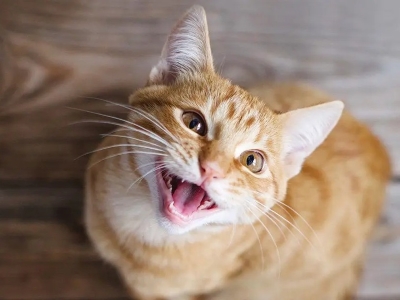
- Attention-seeking: Your cat may be meowing to get your attention, whether they want to be petted, fed, or played with.
- Greetings: Cats may meow as a way to say hello when you come home.
- Discomfort or pain: Cats may meow when they are in distress or feeling unwell.
- Annoyance or frustration: Some cats may meow when they are irritated or not getting what they want.
Purring:
Purring is a positive vocalization associated with contentment, comfort, and relaxation. Cats often purr when they are being petted or when they are cuddling with you.

However, they may also purr when they are injured or in pain, as a self–soothing mechanism[1].
Chirping or Chattering:
This unique sound is often heard when a cat is observing birds or small prey through a window. It is believed to be a frustration or excitement vocalization, expressing their desire to hunt.
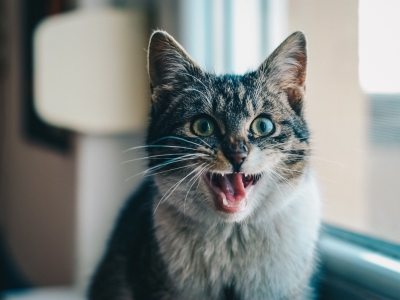
Hissing and Growling:
Murmuring and snarling are cautious vocalizations. Cats utilize them to appear animosity, fear, or distress. It’s a way for them to caution you or other creatures to remain absent.

Yowling:
Yowling is a loud, drawn-out meow that usually indicates distress or frustration. Unneutered male cats may yowl when they are looking for a mate. Cats in pain or feeling lonely may also yowl.

Chirping or Trilling:
Some cats make a soft chirping or trilling sound, often when they are excited or happy. This vocalization is often associated with a cat’s prey drive.
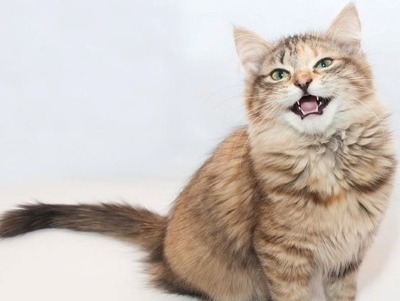
Silent Meows:
A few cats may open their mouths as in the event that they are meowing but make no sound. This might be a sign of a sore throat or that they are attempting to communicate something without making commotion.
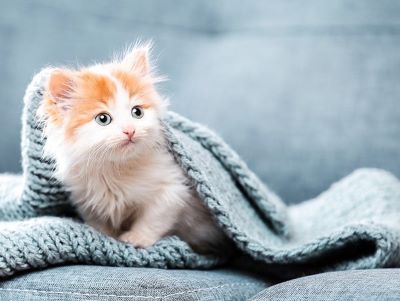
Understanding feline vocalizations goes hand in hand with observing their body language and other non–verbal cues[2].
The context and the accompanying body signals will help you interpret their messages accurately.
It’s crucial to note that each cat has their own distinct vocalizations and mannerisms.
You’ll likely grow better at recognizing your cat’s individual communication patterns as you spend more time with them and form a relationship with them.
Always pay attention to your cat’s requirements and visit a veterinarian if you detect any unexpected changes in their vocalizations or behavior[3], since this might indicate an underlying health problem.
Why Cats Scream in the Wild
In the wild, cats, especially large wildcats like lions, tigers, and leopards, have developed a range of vocalizations to communicate with each other and address specific situations.
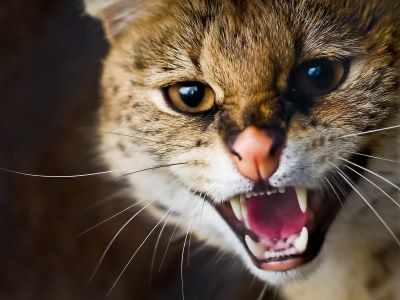
One of the most intense and chilling vocalizations they can make is a scream. These screams serve various purposes related to their natural instincts and survival strategies:
- Territorial Defense
- Communication
- Mating Rituals
- Mother-Offspring Bonding
- Expressing Distress or Pain
- Hunting Strategy
- Establishing Dominance
It’s important to note that domestic cats, while descendants of wildcats, have been domesticated for thousands of years and have adapted their vocalizations and behaviors to live alongside humans.
Domestic cats may scream for reasons similar to wildcats, such as distress or territory disputes, but the intensity and context can be different.
If you have a domestic cat that is screaming excessively or suddenly exhibits changes in vocalizations, it’s essential to observe their behavior and consult with a veterinarian.
Sudden or extreme changes in vocalizations may indicate health issues or emotional distress that require attention.
Common Reasons for Cat Screaming
Cats are as a rule calm and autonomous creatures, but in some cases they may make uproarious and repulsive clamors that can be disturbing for their proprietors.
One of these commotions is cat shouting, which may be a high–pitched yowling sound that cats make for different reasons. Cat shouting isn’t a typical behavior for cats, and it can show that something is off-base.
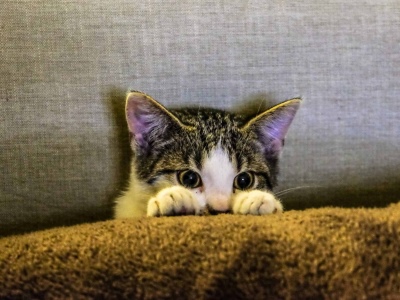
Here are a few common reasons why a household cat may shout at domestic:
- Attention-Seeking
- Hunger
- Stress or Anxiety:
- Medical Issues
- Territorial Disputes
- Mating Behavior
- Frustration or Playfulness
- Disorientation or Confusion
- Past Trauma
- Communication with Owners
It’s essential to pay attention to the context and accompanying behaviors when trying to understand why a cat is screaming.
If the screaming is persistent, sudden, or accompanied by other concerning signs, a visit to the veterinarian is advisable to rule out any underlying medical conditions.
Additionally, consulting with a professional animal behaviorist can help address the specific cause of the screaming and develop appropriate solutions to reduce or manage this behavior.
FAQs
Why do cats scream at night?
Cats may scream at night for various reasons, such as feeling lonely, seeking attention, or experiencing stress. In some cases, they may be responding to nocturnal wildlife or territorial behaviors.
My cat screams when left alone. How can I help alleviate their distress?
Separation anxiety could be the cause of your cat’s distress. Gradual desensitization, providing enriching toys, and leaving comforting items (like clothing with your scent) may help ease their anxiety when alone.
Are certain cat breeds more prone to screaming?
Some breeds, such as Siamese cats, are noted for their talkative inclinations and may be more inclined than other kinds to “talk” or vocalize, including yelling.
Why does my cat scream after using the litter box?
There could be various reasons for this behavior, including pain or discomfort related to a urinary issue or a litter box aversion. It’s essential to have your cat examined by a vet to rule out any medical problems.
Should I be concerned if my cat suddenly starts screaming frequently?
Yes, any sudden and significant change in vocalizations, including increased screaming, may indicate an underlying issue that requires attention. Consult your veterinarian to rule out any potential health problems.
Conclusion
Cat screaming may be unsettling, but it’s essential to remember that it is a form of communication.
By understanding the reasons behind these vocalizations and responding appropriately, we can strengthen our bond with our furry friends and ensure their well-being and happiness.
With patience, compassion, and a keen eye for their needs, we can navigate the world of feline vocalizations and build a harmonious relationship with our beloved cats.
Reference:

Charlene Pare is the founder of Cat Likes Best. She manages and strategizes the content published on this website. When she isn’t working, she enjoys exploring the city around with her Ameican Shorthair kitty–Moli. Being a technocrat and an avid cat lover, she also writes on pet tech products and some of the featured articles.

